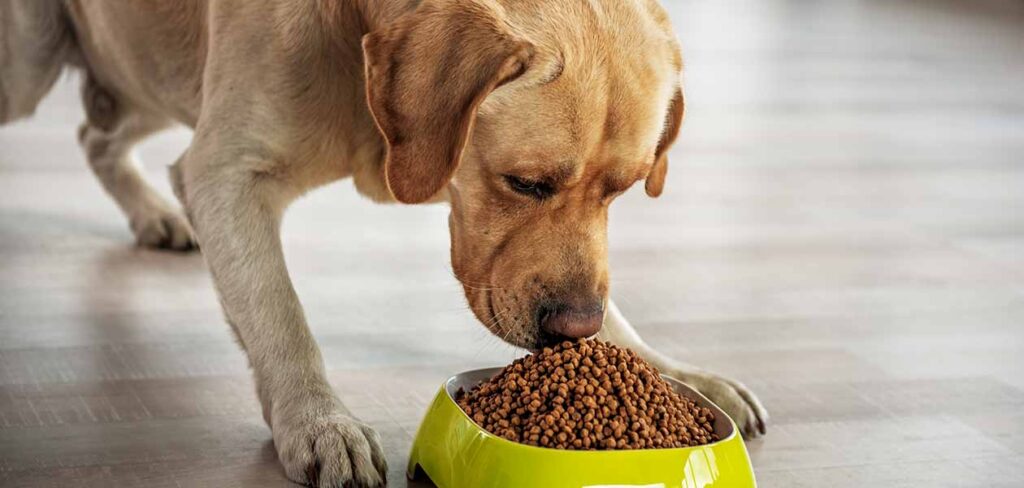
In this dog feeding guide I’ll be sharing links to free articles that cover every aspect of mealtime prep. From choosing the right diet for your dog’s life stage or breed, to which parts of your snack it is safe to share with a furry friend. When you are looking for the right food for your dog, it helps to pay attention to certain aspects of them. Their size, age and any medical issues are a great place to start. From there, just make sure you transition between foods slowly, and feed them in amounts and frequencies that match their age and stage of life.
Contents
- Find a general dog feeding guide
- Adult dog food by breed
- Puppy food and feeding
- Feeding dogs with health issues
Puppies need smaller portions, given more frequently and with a higher calorie content. Older dogs need more fat and protein than younger dogs. Sensitive stomaches might benefit from limited ingredient diets.
General Dog Feeding Guide
Best Dog Food By Breed
- Australian Cattle Dog
- Beagle
- Boxer Dog
- Chihuahua
- Cockapoo
- Doberman
- English Bulldog
- French Bulldog
- Golden Retriever
- Goldendoodle
- Husky
- Miniature Schnauzer
- Papillon
- Pug
- Rottweiler
- Shih Tzu
- Weimaraner
Best Puppy Food By Breed
Newborn puppies only need their mother’s milk. Or a milk substitute on rare occasions. But from the time you bring them home they will be weaned and need a complete diet.
- Australian Shepherd Puppy
- Chihuahua Puppy
- Boston Terrier Puppy
- Cane Corso Puppy
- Dachshund Puppy
- Doberman Puppy
- French Bulldog Puppy
- Goldendoodle Puppy
- Golden Retriever Puppy
- Great Dane Puppy
- Husky Puppy
- Labradoodle Puppy
- Pomeranian Puppy
- Yorkshire Terrier Puppy
Puppy Dog Feeding Guide
Want to get the right feeding routine, quantities and nutritional content for your puppy? These dog feeding guides will help you plan every detail of your pup’s daily diet.
- Australian Shepherd Puppy
- Border Collie Puppy
- Bull Terrier Puppy
- Bulldog Puppy
- Cane Corso Puppy
- Chihuahua Puppy
- Chow Chow Puppy
- Cockapoo Puppy
- Dachshund Puppy
- French Bulldog Puppy
- German Shepherd Puppy
- Husky Puppy
- Labradoodle Puppy
- Maltipoo Puppy
- Pitbull Puppy
- Poodle Puppy
- Pomeranian Puppy
- Pug Puppy
- Rottweiler Puppy
- Shih Tzu Puppy
- Saint Bernards Puppy
- Whippet Puppy
Healthy Dog Feeding Guide
There are a few health problems that are helped by using specialist dog food. And some breeds that suffer from them more frequently than others. See if your pup’s problem is listed below, and click to find out more.
Can Dogs Really Eat That?
It’s a natural human desire to share with our loved ones. And what’s easier to share than our own dinner or snacks! But not all of our meals are safe for our dogs to dine on.
- Asparagus
- Bok choy
- Cantalope
- Celery
- Chocolate
- Corn
- Cucumber
- Graham Crackers
- Green beans
- Jackfruit
- Lychee
- Mango
- Marshmallows
- Okra
- Olives
- Pasta
- Pecans
- Pineapple
- Raspberries

Leave a Reply